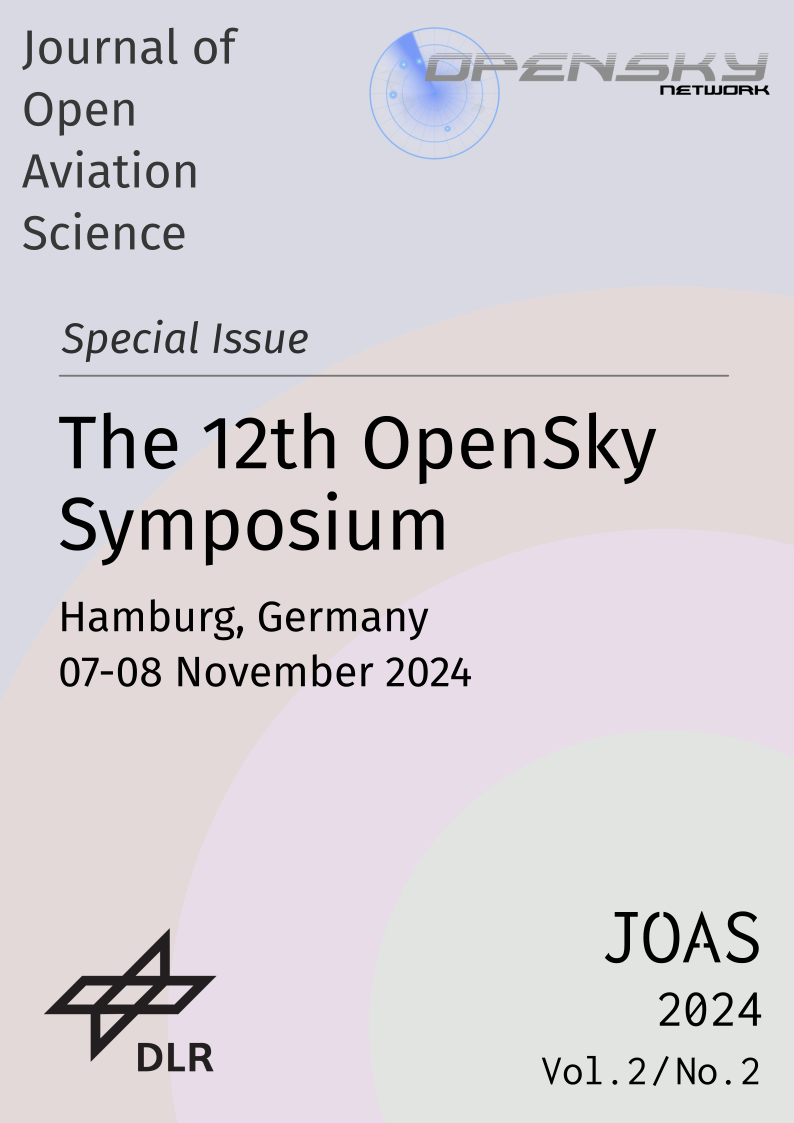Evaluating Potential Fuel Savings of External Alternative Ground Propulsion Systems
DOI:
https://doi.org/10.59490/joas.2024.7888Keywords:
Alternative ground propulsion systems, aircraft surface trajectories, automatic dependent surveillance-broadcast, aircraft emission reduction, sustainabilityAbstract
This study evaluates the potential fuel savings from using external Alternative Ground Propulsion Systems (AGPS) at Zurich Airport, based on Automatic Dependent Surveillance–Broadcast (ADS-B) surface trajectory data collected from May 1, 2024, to September 30, 2024. Using the Aircraft Emissions Databank of the International Civil Aviation Organization to analyse conventional taxiing and AGPS-assisted taxiing modes, our research estimates fuel consumption during the taxi phase of departing aircraft. The findings indicate that adopting AGPS could reduce taxi fuel consumption by up to 58.9 %, amounting to 5.77 million kg of jet fuel saved, which is equivalent to 18.23 million kg of CO2 emissions, at Zurich Airport alone. The study highlights the significance of selecting aircraft with longer taxi durations for towing to maximize fuel-saving benefits. Even with limited AGPS resources, substantial reductions can be achieved; for instance, deploying just four AGPS units could cut taxi fuel consumption by up to 33.3 %. While the study offers a promising approach to reducing emissions, it acknowledges that practical challenges, such as the need for operational adjustments, must be overcome to ensure the successful implementation and effective use of AGPS in real-world applications.
Metrics
Downloads
Published
How to Cite
Issue
Section
License
Copyright (c) 2025 Manuel Waltert, Benoit Figuet, Michael Felux

This work is licensed under a Creative Commons Attribution 4.0 International License.


